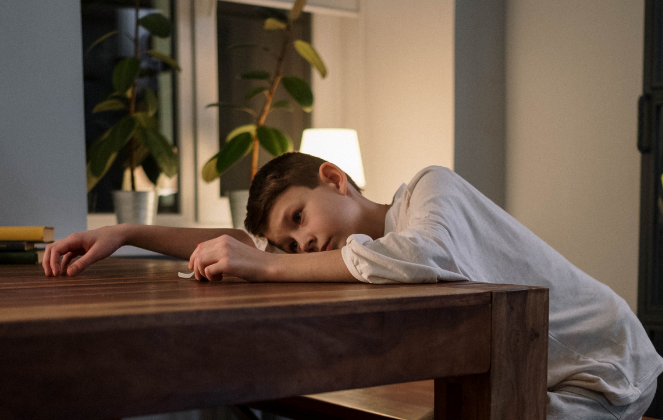Dealing with M.E
“Millions Missing” is the theme of this year’s M.E. Association fundraising. Millions of people missing from everyday life because they are at home too unwell to attend school or work, and millions missing in funding to find a cure. Sounds unreal, doesn’t it? That’s the situation for many people including up to 40,000 12-18 year olds in England alone who are too unwell to attend school. Chronic fatigue syndrome or M.E. (myalgic encephalomyelitis) often comes about after a period of viral infection.
The experience of my 14-year-old son has been an eye opener for our family. It has resulted in tonnes of doctors’ appointments, try this or that, tonnes of missed school hours and missed hours of work for mum. We hope that at some stage he will be well enough to make even 2 hours a week in school. Here’s our story so far to make more people aware of this devastating illness and its’ effect on the sufferer and their family and also in the hope that people will donate to this year’s campaign. Included are 2 free PDFs from the M.E. association and other useful informational links at the end of the blog.
Our Story
We live in Scotland. In February 2016, our son who had been happy and healthy , suddenly became unwell with 2 weeks of gastric symptoms after eating an in date, properly heated chicken ready meal. After 2 weeks, the GP decided to check him for e-coli, campylobacter and salmonella. All 3 results were clear. Further tests for bacterial infection, limes disease, thyroid and diabetes were also clear.
After 2 weeks he was exhausted, slept all but 4 hours a day from 6pm to 10pm and would not eat or drink much. Several weeks later still the same. The GP told us that this was just a virus and would go in its’ own time. It was diagnosed as post viral fatigue, quite common. Several months later he was still not able to attend school and still sleeping so in frustration we asked about a Paediatric referral but were told that there was no point as all the tests had been carried out.
We sought an independent opinion to find out that there was only one specialist in Aberdeen dealing with endocrinological issues for anyone under 16 in Scotland. With an exhausted child who had extreme light sensitivity, felt dizzy and sick and could not travel anywhere or handle even small noises this was not an option. We were advised the best idea would be an endocrinologist or gastroenterologist to cover hormones, gastric and all other options. So, we saw both!
The gastroenterologist did not believe in the condition and was of no use other than suggesting a colonoscopy and gastroscopy to check if he had an upset stomach. The M.E. nurse advised against general anaesthetic with ME. The endocrinologist confirmed M.E (which is one of the hardest things to get a confirmed diagnosis for). He felt that our son would get better very soon but could not suggest anything other than trying to get into some sort of routine.

Answers
We began searching the web who to get the best advice from and came across the ME association Facebook page. This was a great help. We contacted Dr Charles Shepherd of the ME Association who suggested getting in touch with the homeopathic hospital at Gartnavel. Then, we were assigned an M.E. nurse who had experienced M.E herself and who was very supportive and recommended a gluten free diet to cure the gut initially. Although she could advise and recommend homeopathic things to try she could not treat our son as he was 14 rather than over 16. The centre can only deal with adults for rehabilitation and monitoring. We started chatting online with some other ME association Facebook users with teens in similar situations which was both depressing but also in some ways encouraging to hear that others were coping with their education in some way despite their illness.
Facts
The problem with ME is that there IS no routine. Some days the sufferer sleeps all day and are up all night. Some days they sleep all day and night. Or, they are up during the day and sleep more or less normal hours. Everyone’s symptoms differ but more or less with our son we can confirm these trends:
- Permanent pain all over the body which moves about in severity and which no painkiller works for
- Brain fog so they cannot read or write easily and forget things
- Pain and fatigue when talking or walking, dressing, showering, using stairs or even getting up out of bed
- Pain during sleep that wakes them even if they do sleep and no sleep relieves the pain or fatigue
- Off food and not wanting to eat anything
- When they do eat, there are gastric issues within half an hour of eating
- Eating any sugar seems to completely flatten them so they need to sleep within 15 minutes or so of eating even the slightest amount.
The symptoms differ from person to person and some are so severe they are wheelchair and house bound. As a result, over a period of time sufferers can also become quite depressed – out of school, missing their friends, no social interaction other than online and no normal lifestyle.
Where we are now
Eventually we obtained a referral to a Paediatrician who redid all the tests to re-diagnose M.E. herself. The biggest help has been the M.E. nurse referring us to a Physiotherapist who has not been able to do any work but has chatted to us and actually asked the real question “But who is helping you both coordinate all this between school, physio, psychology, ophthalmology, M.E. nurse, GP, dietitian, and specialists?” Answer? In this case it was MUM! She referred us on to a NHS paediatrician who has helped coordinate all the appointments.

For school the ASN (additional support needs) Outreach tutor has got involved to offer an hour a week helping coordinate school work. If your child develops what looks like M.E. then I highly recommend getting put under even a general NHS specialist so that for all future specialists’ appointments and education needs, all have access to your confirmed diagnosis. Insist your GP do this referral early on. You need the NHS to help get educational assistance that your child is entitled to.
Lessons Learned
Dealing with work has been hard. I have my own business so can work from home in the afternoons. We also have grandparents in the same street. A good personal support network is important. I have spoken to others who have had to permanently give up their work. Not easy if you have financial constraints. Also, dealing with friends and family can be hard. No one understands unless they know someone who has M.E. They ask if you are better today or getting better. This can be frustrating as there are not continual signs of improvement with ME. It’s a roller coaster. It’s said that sufferers normally just suddenly improve over a few days and there is no build up to this. Some sufferers, unfortunately never recover.
Dealing with people who think you are a “weak parent” and should just MAKE them go in to school or MAKE them walk up the street is difficult. I have found that it’s best to walk away and not get into the conversation. It’s unhelpful and you need to understand that they just don’t get it. Not everyone will. The PACE method (balancing activity and rest to help manage M.E) can have mixed results. It works for some and not for others. M.E. is not like a physical muscular problem. Pull a muscle then you loosen it up and walk a bit more each day, build it up and hey presto, you are then better. With M.E. you walk out into the back garden and can be sleeping the next 3 days or walk a bit further because you feel better and you can be flattened for a week.
All in your head
There has also been some press about ME being a psychological problem. This can be unhelpful and hurtful. You try to be in pain for a year, not go out of the house, not attend school, not see friends, not be able to think straight, not eat, not cope with light without headaches and then be told it’s in your head! I read one teenagers’ story saying ME is equivalent to doing a transatlantic flight 3 times in a row without sleeping, then going in to work and working through the night, not having any food or drink while doing this then repeating this for weeks on end and then trying to do a normal daily routine. That’s M.E.
I hope that if anyone is struggling with this illness or knows someone who is, or you empathise for people with ME by reading this blog, then please donate so that a cure can be found. Here’s the link to donate.
M.E. affects children and adults, and there is no real understanding of who is getting it and why. A cure is needed and hopefully soon.
Ann-Maree
MD of Labels4Kids
Helpful sites
M.E. related e-books
Just-Diagnosed-FINAL-3-FOR-PRINTING-28-Oct-copy
Explaining-ME-to-other-people-May-2017

